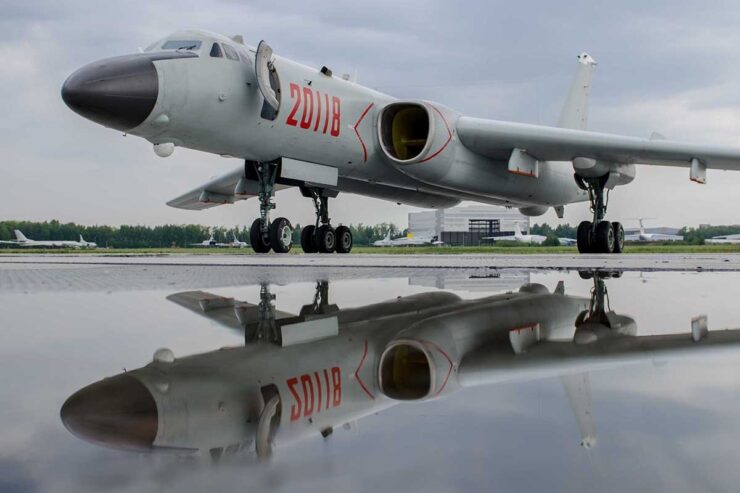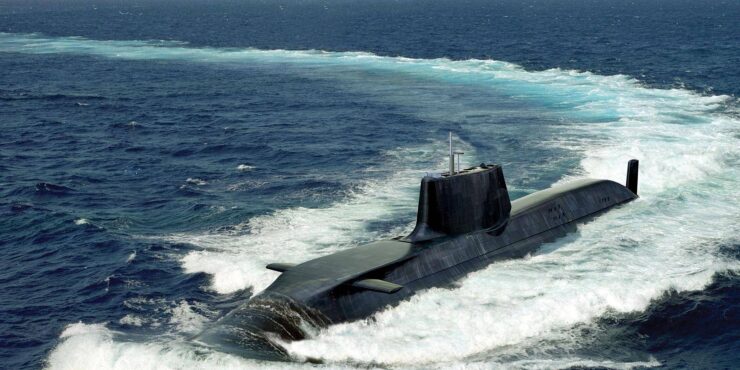
There is a pattern in Chinese approach towards Taiwan-denying the legitimacy of the latter’s existence, reinforcing the principal of one China & the constant international propagation of the Chinese communist party’s message that Taiwan is the ‘unfinished business’ of the 1949 Communist revolution which needs to be completed by using brute military force if necessary. The latest Chinese violation of Taiwanese airspace proves the point –China’s latest air incursion involved some 56 fighter jets which includes H-6 heavy bombers. This has demonstrated amply that Beijing intends to unite Taiwan with the mainland by carrying out a possible invasion. Taiwan however scrambled its own fighter jets to chase away the Chinese jets and also activated missile defence systems in the event of any eventuality.
However, this latest Chinese bellicose behaviour can prove to be very lucrative for India. New Delhi has been looking for diplomatic and economic alternatives to China following the border skirmish in June 2020 which has upended the existing harmonious nature of Sino-Indian ties.
Crafting a grand strategy
India has been one of the countries which have been at the receiving end of Chinese subversion and perfidy when it comes to military and economic offensive. Having suffered at the hands of unwarranted Chinese aggression, the time has come to craft a new grand strategy to tackle China. Taiwan holds the key to this strategy. The strategy can be divided into different parts-
Firstly, India must deepen ties with Taiwan. The nation state despite its small size is a robust economy with strong democratic foundations and solid political institutions. Taiwan is one of the rising stars of the global economy and has demonstrated its medical capabilities by successfully tackling the Covid-19 pandemic on its soil. If New Delhi has the risk appetite then it can go for establishing full diplomatic ties with Taiwan. It is also necessary for India to try and carry out a diplomatic offensive to urge countries which are miffed at China to recognize Taiwan.
Secondly, India should change its diplomatic stance regarding not being member of a military pact, it should try and become a member of the AUKUS pact and then actively lobby to include Taiwan and Japan in the grouping, this will not only lead to the institutionalization of the Quad and AUKUS with each other but will also help in ensuring producing an effective military deterrent to China.

Thirdly, India should step its vigil in the strategic South China Sea region by developing a new maritime security and blue economy grouping focused on ensuring freedom of navigation in the South China Sea region and if necessary the Indo-Pacific region.
Fourthly, promoting the cause of human rights is another important agenda. India till now has remained tight-lipped on the abuse of the rights and liberties of the Uighur people who have been subjected to every kind of torture and inhuman treatment by the Chinese state, it is now high time that India change tack and actively raise the issue of human rights abuse of Uighur people in all the international diplomatic forums-most notably the United Nations, while some geopolitical experts may see this as a departure from India’s long and often ‘sacred’ Panchsheel policy of non-interference in the internal affairs of other countries. It should not matter because policies and foreign policy agendas change in accordance with time and situations.
Fifthly, developing alternative supply chains of critical commodities, the RSCI initiative is one such attempt, but its scope is too limited and geographically miniscule. India should actively reach out to its allies – African, Asian etc. to become a part of this initiative to reduce their dependence on Chinese led supply chains. The disruption caused by China locking itself from the rest of the world to contain the spread of the Covid-19 virus led to catastrophic consequences for the supply of critical commodities in 2020.
Remaining mindful
Sun Tzu said, “The supreme art of war is to subdue the enemy without fighting”. While developing a grand strategy, India should also be mindful of the pitfalls of it. China can actively try and subvert such an Indian initiative by propagating anti-India fake news and threaten a three front war with India. It can use its anti-India assets in the form of militant groups based in northeast India to disturb peace in India, but India must be extra cautious and should be ready to thwart any such Chinese misadventure.
– The writer is currently working as a Trainee Research Associate at Defence Research and Studies (dras.in) and is a columnist. The views expressed are personal and do not necessarily reflect the views of Raksha Anirveda








